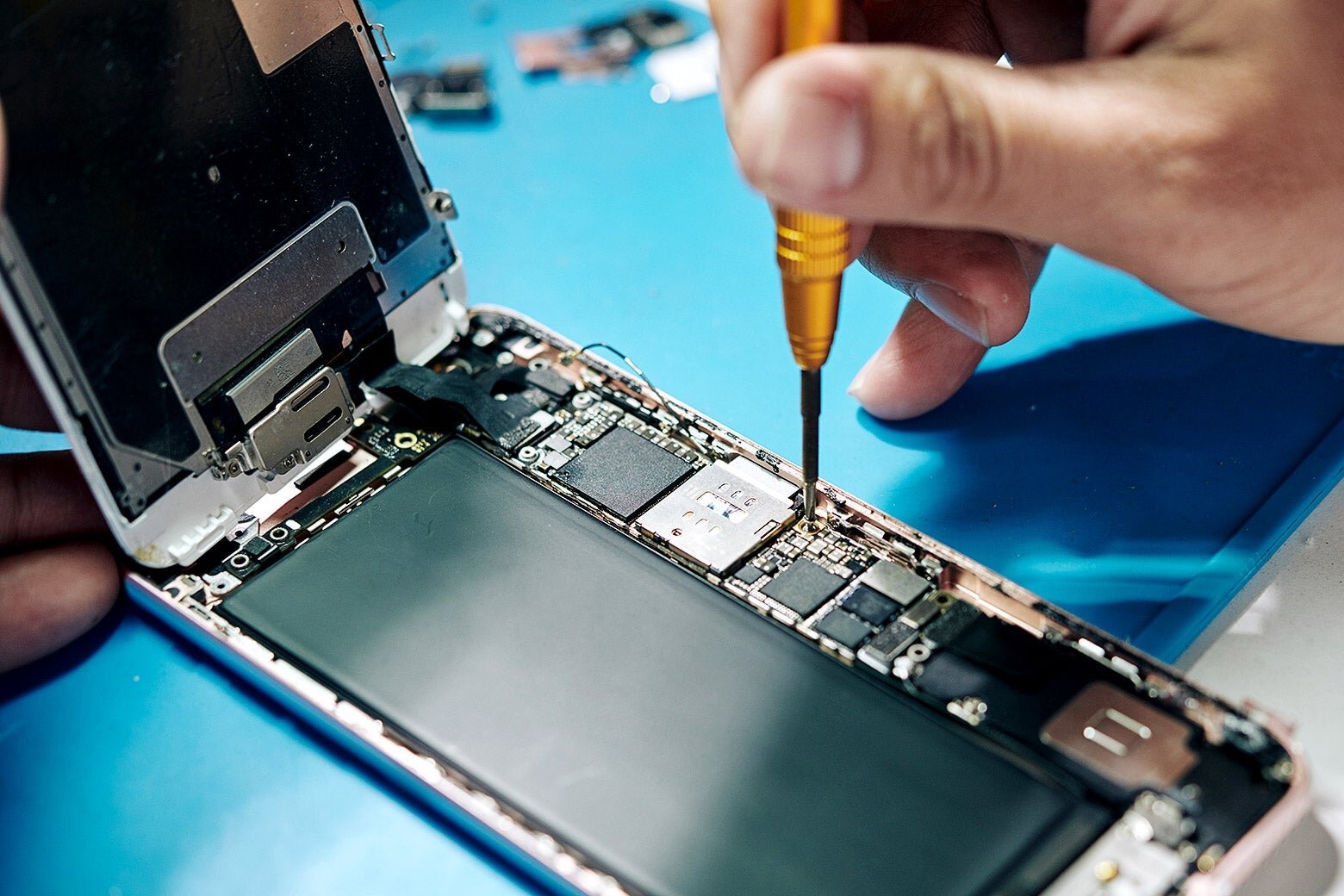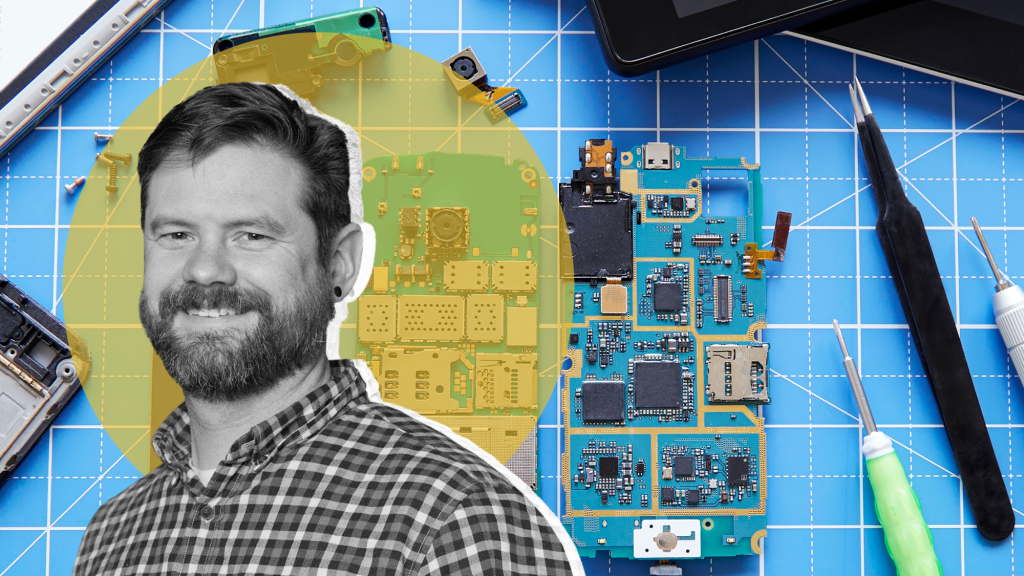Point/Counterpoint Discussion with Gay Gordon-Byrne, Executive Director of Repair.org, and Willie Cade - Midwest Regional Director — Repair.org.
The leading trade association for the AG industry is the Association of Equipment Manufacturers (AEM) and their dealership counterparts the Equipment Dealers Association (EDA) Both have made public statements offering support with significant caveats -- which is a window into the core of their aggressive opposition to proposed legislation.
Here are the main loopholes in their “support” statements:
We support farmers’ right to repair, but not their right to modify.
Gay: The most obvious flaw in the statement, which the FTC Report to Congress on “Nixing the Fix” noted is that repair isn’t modification. Legislation directed at opening a competitive market for repair does not require modification and the FTC concurs.
Willie: The FTC also noted that IP rights are not impacted by repair. I think it's more telling that AEM and EDA both consistently fail to acknowledge the rights of owners of “land-based motor vehicles” to modify their software already granted in Copyright Law with the 2015 exemptions to Section 1201. ([link]
Farmers can fix 98% of their stuff
Gay: So much to unpack here. First -- we don’t see any disclosure to farmers about which parts are off-limits to repair -- which is inherently unfair and deceptive. Second -- and I think most importantly - farmers paid 100% for the product and logically expect to be able to fix 100%. Third -- my inner cynic thinks that the 2% figure is a fabrication intended to backstop the idea being presented to legislators that there isn’t a need for legislation because there isn’t a problem any longer.
Willie: Plus a partial repair isn’t a complete repair. And if a product is down for a dealership visit -- that machine is 100% useless until the dealership can visit and complete the repair. We’ve been trying to get a handle on the limitations on repair directly from farmers, and our sense is that limitations on repair are far more pervasive than disclosed.
Imagine if your car check-engine light flashes, and instead of being able to continue to drive the car shuts down entirely. Maybe you can limp at 2 mph to a mechanic that can plug in a diagnostic tool and learn that your front headlight needs replacement. But that mechanic can’t replace the light because only the dealership has the software tool that pairs the bulb to the VIN. This is exactly the problem farmers face every day when a small part, even a relatively trivial part, takes the machine down.
If Right to Repair passes, farmers will hack the emission on their equipment and violate the Clean Air Act
Gay: I’ve dug into the Clean Air Act and read compliance advice from the EPA. I don’t see any requirements that OEMs or Dealerships are deputized to enforce the law. There is a requirement on dealers to bring emissions back into spec if the equipment is brought to them for an emission repair -- but the EPA very clearly states the dealership doesn’t have to fix emissions if the repair request is unrelated. (https://www.epa.gov/enforcement/clean-air-act-vehicle-and-engine-enforcement-case-resolutions)
Lately, the EPA has come down hard on diesel tuners for over-the-road trucks (https://www.epa.gov/newsreleases/epa-penalizes-premier-performance-3-million-selling-defeat-devices) as evidence that they do enforce violations directly with the violators. The schedule of fines for users is very clear as well. Farmers that hack their emissions are subject to fines directly.
Willie: Damn straight, OEMs are not the environmental police! To say that producers are all “criminals in waiting,” is BS!. It is insulting.
Trade in Values will be diminished if farmers mod their engines to run at higher Horsepower.
Gay: This is simply wild. The farmer, as the owner making the trade-in or private sale, is the only party that benefits or loses value based on equipment condition. Dealerships should be taking equipment conditions into account when making an offer -- just like a car dealership evaluates the trade value. If Dealers aren’t savvy enough to pick up on mods, that's on them. If the tools to evaluate conditions are inadequate -- then dealers should be asking for better tools.
Willie: Deere created the one machine series with firmware-controlled settings. The machine itself is built to run at the max settings, so it's not going to hurt the machine if the farmer goes to the max. This is a pricing problem for Deere and not a technical one.
Are producers really upset about this issue?
Gay: Producers are livid about any limitations on repair. Why not just let the farmer buy the pairing tool and the parts? Is there that much money to be made on repair?
Willie: There is a great deal of money to be made on repair. IBISWorld estimated repair spending in the U.S. in 2018 at $39.1 billion for heavy machinery. Now that agricultural equipment has been “computerized,” what has been for generations a repair industry composed of small, independently run operations now is controlled by OEMs via software. This represents a high margin growth opportunity. Even the OEM’s dealers are having to fork over more money and they are not happy about that!. This problem is only going to get worse as the percentage of computerized equipment in a producer’s fleet increases.
Is this really all about the price of their stock?
Gay and Willie: OF COURSE!










